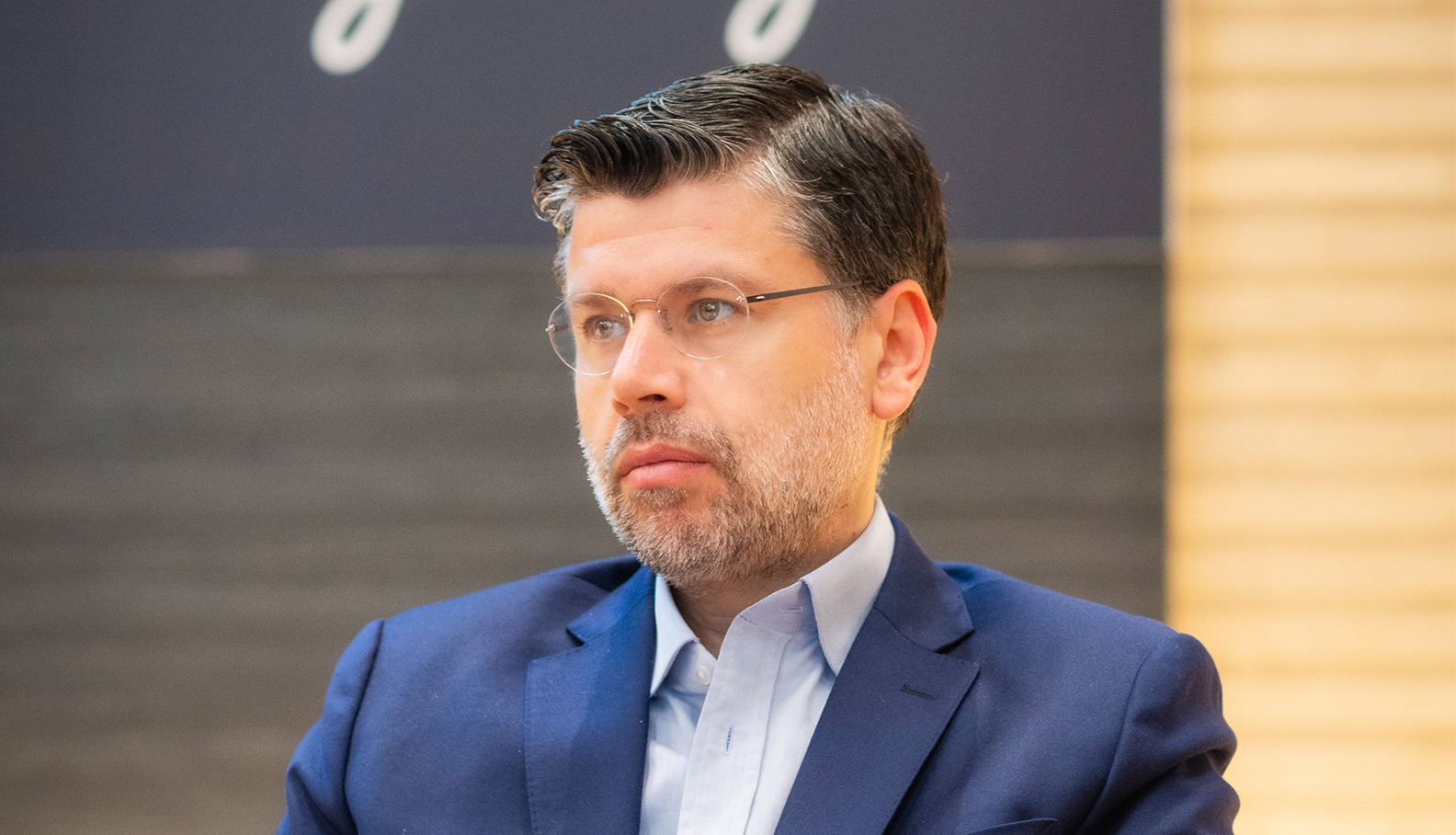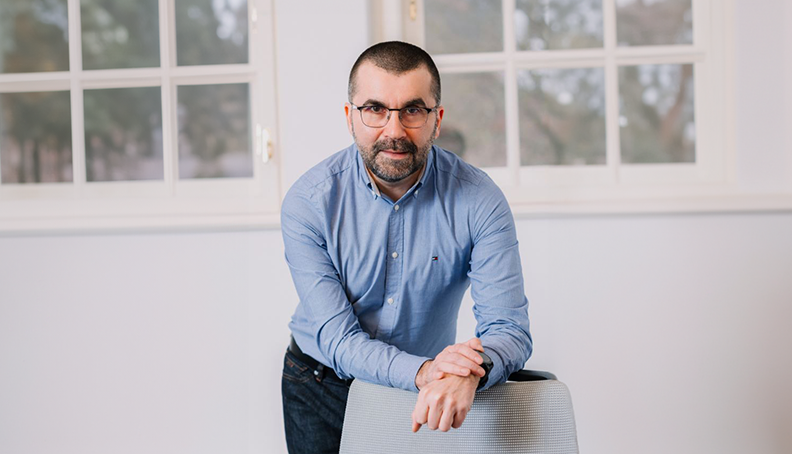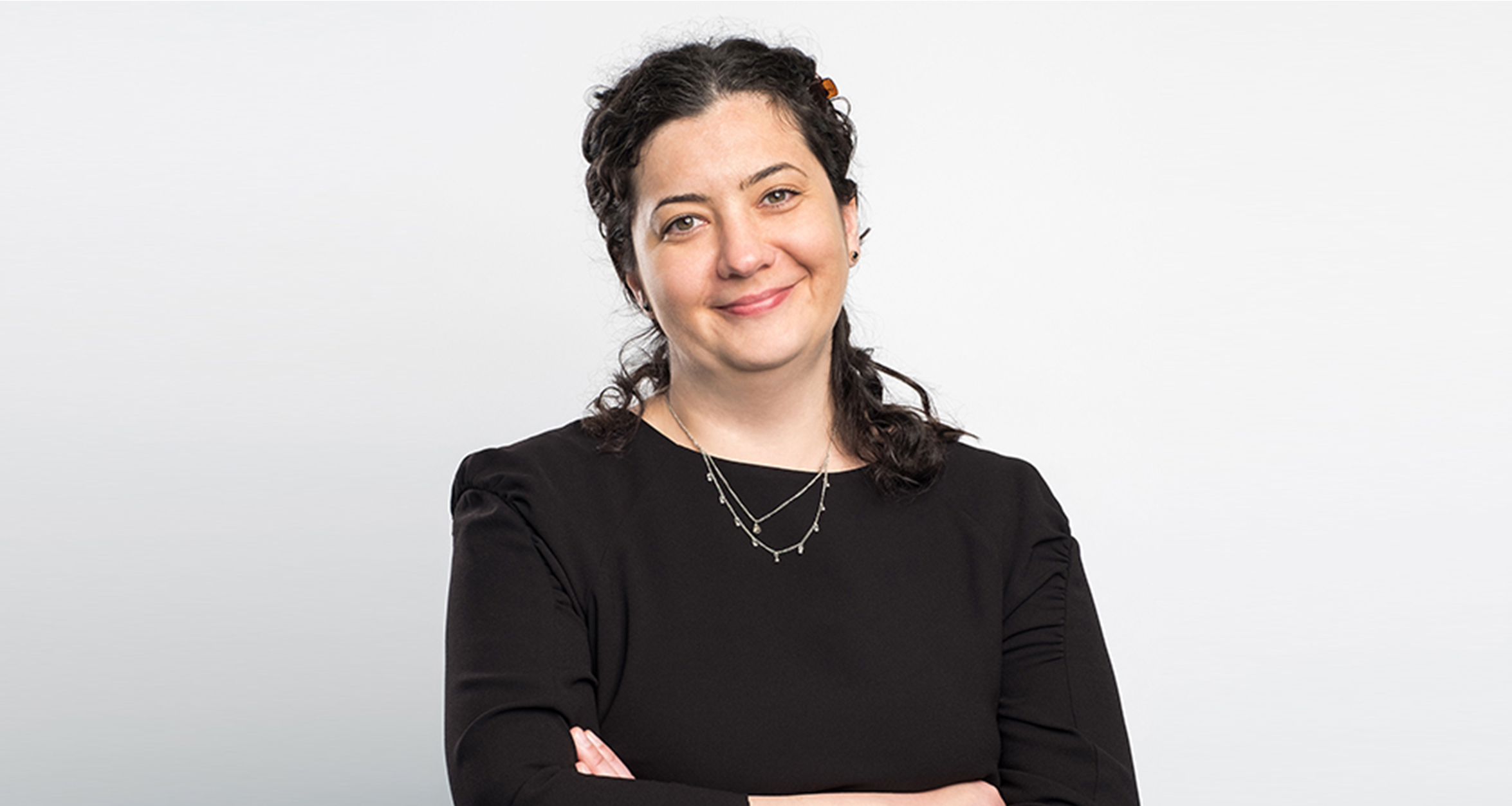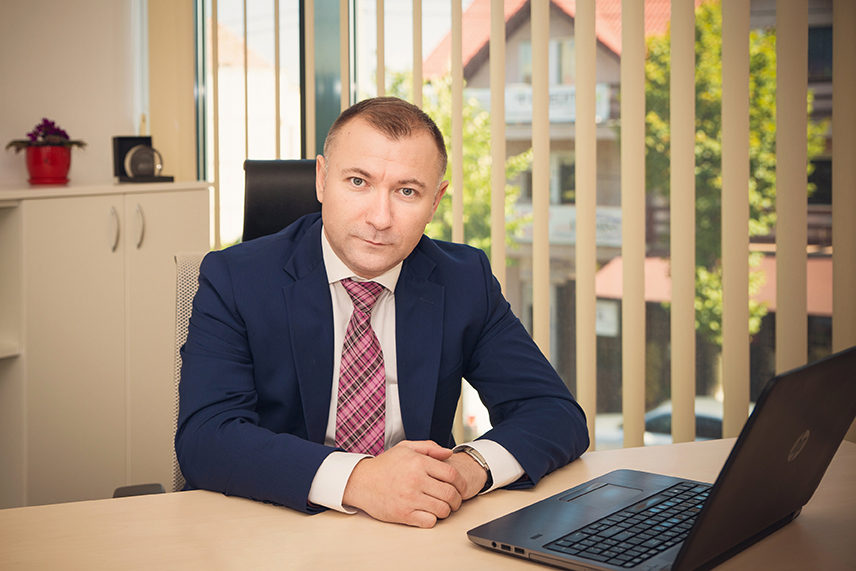Florin Predescu Vasvari, BT: Every businessman needs to raise his level of knowledge to keep up with the market and its changes
07 July 2025 Reading time 15:00 minutes

Florin Predescu Vasvari, member of the Board of Directors of Banca Transilvania and Academic Director of the Institute of Entrepreneurship and Private Equity at the London Business School, where he is also a member of the Board of Directors, gave an interview to the Cariere Magazine, where he talked about the characteristics of high-performing education systems, the economic challenges in Romania and Europe, as well as about his role within Banca Transilvania.
Part of the BT Board of Directors since 2022, he is also Chairman of the Nomination Committee and Member of the Risk Management Board, also at Banca Transilvania.
What was your educational journey like, from Râmnicu Vâlcea to doctoral studies in Canada, and what changed your perspective on education?
I was born in Râmnicu Vâlcea, in an absolutely normal family, my mother being an accountant and my father a technician. I lived here until 1995, when I graduated from the "Alexandru Lahovari" National High School, mathematics-physics profile, the best high school in the city. Then I moved to Bucharest, where I studied at the Academy of Economic Studies, Faculty of Cybernetics, Statistics and Economic Analysis, until 2000. And in 2000, I moved to Canada, where I pursued a Master's degree, followed by a PhD in Management, specializing in Finance and Accounting, at the University of Toronto.
During the years when I studied in Romania, school was quite rigid and I can't say that I had any teachers who had any kind of impact on me, who inspired me or guided me in one direction or another. For me, everything changed radically when I moved to Canada.
How does the Canadian education system differ from the Romanian one?
The education system was very different, it was a shock for me in a way. In Romania, during my school years, I had high grades and I had a scholarship at university. Under those conditions, you live with the impression that if you're at a very good university in Romania and you have a scholarship, everything is simple outside, that we are much more advanced. But when you go to a top university abroad, you realize that it's not like that.
Of course, what I studied in Romania was very good, that's why they accepted me at the University of Toronto, where I had a scholarship for both my master's and doctorate. But after all, the system is very different. In Romania, at that time, the education system was one in which there were a lot of exams and you had to be very good at reproducing the material. The system abroad is very different. It's almost impossible to get top marks in an exam. There's too much reading, too much studying to get a perfect grade. And when you're used to perfection in Romania, you come to realize that you have certain limits.
What motivated you to choose Canada for your postgraduate studies?
Many things in life happen by accident. I didn't have a plan to go to Canada. At that time, my wife, who was not yet my wife and who had been my colleague in Cybernetics, had the same opportunity as me to study in Canada. So we decided to go together. There was also the option to go to America, but they didn't give you a visa. We got married just a week before going to Canada because otherwise we couldn't go together. That was one of the reasons why I chose Canada. In addition, the University of Toronto was the best in Canada, and we were aiming for that, so my wife and I did the same master's degree and doctorate here.
You mentioned earlier the shock you felt in contact with the new education system. What exactly did it consist of?
First of all, the way it was taught, you had a lot of reading. In Romania, at university, you had your lectures, you took your notes, the teacher wrote everything on the blackboard. If you knew the lectures, you got an A in the exam. When you go to university in Canada or in the US, where it's the same system, you have to read a lot of books to understand what you're being taught. The course gives you, let's say, 35% of the material, and for the rest of the information you have to read by yourself.
Many exams are not just about answering questions. Some exams are also oral, you have to have very good communication skills, you have to synthesize what you've read, explain or write projects. You have to interpret, analyze, it's an education system that forces you to think from different angles, not just reproduce. But the fact that the material you have to learn is so much bigger than in Romania, with so much to read, that was probably a shock for me. No matter how much you prepared for an exam, you still felt you hadn't covered everything.
How have you adapted to such an intense and different educational pace?
I think the first thing I realized right away was that you can't just prepare before the exam. I don't know what it's like in Romania now, but in the years when I went to university, when the exam session started, that's when you started studying. In Canada, you start studying from the first day you go to class until the day of the exam, which can be three or four months later. You have to be connected to the subject all the time because otherwise you fall behind a lot.
But there is also a much more developed learner support system, in the sense that every class has a teaching assistant. Teachers had once or twice a week dedicated times where you could go and talk to them or their teaching assistant and have your questions answered. From one week to the next, you could have homework to do, which, at that time, was not the case at university in Romania. That's probably also why almost everyone prepared for exams only during the semester.
In 2006, you chose to relocate from Canada to the UK. What was behind this decision?
A first reason was that we wanted to be as close as possible to Romania. The second reason was that we wanted to live in a big city. We had many opportunities to go to America, to teach at universities there, there are many in small towns. But it wasn't something we were used to living in. For us, London was the number one priority, applying for a job at London Business School, which we got. I teach finance, private equity investment.
How similar is the UK education system to the Canadian one?
Quite similar. It's just that in business schools, like us, things are much more practice-based, we have a lot of case studies. In a business school, you study a lot of real business cases, because the people who come here have, many of them, their own businesses. The London Business School has two types of programs: the degree program, if you want to do a master's in business or finance, and the executive program, where you just come for a week or a month.
On the executive courses side, we and INSEAD are the biggest, excluding the USA. Annually, we have around 2,200 students doing masters and around 12,000 students coming for those short courses. So when someone who is already an executive in a company comes to London Business School for short courses, you have to offer them very applied courses.
What drives entrepreneurs or CEOs to take short courses at London Business School?
There are people, including from Romania, who own businesses or want to invest money. Many of the entrepreneurs who come here don't necessarily have businesses they have built themselves, but inherited from family. They are not necessarily people trained in business, some may be engineers or lawyers. And they've either built a business to a point, or they've taken it over from their parents, but they end up realizing that they're no longer coping with the demands of the market. They no longer understand what's going on around them. So they come to learn. This is what we offer them: best practice from around the world. In my case, I teach them how to invest in private capital markets. Even those who have invested before they come to my class still have a lot to learn, it's an area where things are moving quite fast.
Can you give us a current example of a major transformation in the business world?
For example, lately, everyone is talking about how business is being hurt by US tariffs. Until now, maybe you haven't even heard of tariffs. You didn't even know what tariffs are. Add to that the competition, which is getting fiercer and more dynamic. In the end, every businessman needs to raise his level of knowledge to keep up with the market and its changes.
In addition to your academic work, you play an active role on company boards and boards of directors. What does this involvement involve?
The board of a company does two very important things: it sets the strategy of that company and it decides how resources are allocated over the next year or the next five or ten years. Of course there are other roles too, deciding who to be in management, who to hire and so on. It is important for any board to have members who think independently and bring a unique perspective. If, for example, all the members of this board all studied at the same university and are all Romanians, then the added value of this board is limited, because they all think alike. The idea is that each board should have people who are as different as possible, so that they each bring points of view from their own fields.
I, being specialized in investment funds investing in private companies, I am used to capital allocation and I understand the field very well, I bring this kind of knowledge to the board of Banca Transilvania. I have also written books in the field, I teach these things to hundreds and hundreds of people at the London Business School. Being also in the academic area, which is a bit more critical, more introspective, I also come with this perspective. So the questions arise: why are we doing this? Is what we are doing effective?
Apart from the banking project that keeps you connected to Romania, are there any other projects you are involved in in the country?
Yes, I'm part of the investment committee of Morphosis Capital investment fund, which operates exactly in the area where I teach: private equity funds. I think, at the moment, it's the biggest in Romania.
The global situation is not rosy in any part of the world, with many economic challenges. Do you think we are already facing a global financial crisis?
I don't think so. There are crises like those caused by external factors, like the COVID-19 pandemic. Or like the one caused by too much investment in Residential Real Estate, like in America in 2008. The crisis we are feeling now is more politically driven, by the US administration's decision to impose tariffs. But that decision could be reversed tomorrow. Tomorrow, President Trump may decide to delay tariffs for another 90 days. For now, we're not in a crisis, I think, and I don't think we're going to have a financial crisis this year. Anything is possible, but I don't think we will have a crisis, because I think the Americans understand what the economic implications are and we have seen that they are already signing trade treaties with various countries. But, yes, the tariffs imposed by the US are a readjustment for many companies.
How does the war in Ukraine affect Europe's financial stability?
The main impact is on the energy side. Europe, being heavily dependent on Russian gas and oil resources, has suffered. But it is a temporary impact, a kind of energy shock after all, because Europe was not paying as much for energy as it is paying now. Russian energy has always been very cheap. But America also produces a lot and wants to export to Europe. So does the Middle East. So there are alternatives, which will reduce the financial pressure on Europe.
Of course, there is another shock on the security side in Europe, which has never had so much to worry about as it has now in the last 40 years. The Americans have guarded security in Europe for decades. I think now is the time for Europe to get to grips with it. I do not know if it will succeed, but if it does, then there will be very big investment opportunities in Europe, in Ukraine, in Romania. I think there will be a lot of financial capital coming in.
How attractive are Romanian businesses for foreign investors?
I don't know if they are attractive. I can't see now why investors would necessarily look at Romania. They would probably look at Romania if something was being produced and re-exported to Europe. But Romania has its own problems. It has resources, but unfortunately it no longer has a labor force, and the one that still exists is perhaps no longer sufficiently qualified. Labor costs in Romania, on the other hand, have become high and are rising every year. Salaries are rising. It is not easy to invest in Romania.
Are there other obstacles discouraging foreign investment in Romania?
We don't have the infrastructure in place. Highways are being built now, but it is very late. And there is no telling how many years will pass before all the highways are built. Secondly, as I said, there is a problem with the labor force in Romania. There is not the labor force as it used to be. A lot of people have left. And the labor force now is quite expensive. Wages in Romania are often higher than in Italy or Greece, especially in big cities.
How do you explain the fact that Romanian labor has become more expensive than in countries like Italy?
One basic explanation is that there are not as many qualified people left in the country as there were 10-20 years ago. A lot of them leave, unfortunately, and they are still leaving university. There are people who stay in Romania who are very good professionally, but it's not easy to find them. There are probably five to six million Romanians leaving the country, and the impact is massive. I also see a lot of children who choose to leave after they have finished high school to study abroad, and many of them never come back. The fact that Romania has not invested in the education system is a big problem.
In your opinion, what are the most unpredictable aspects of Romania's economy?
I think the big problem is uncertainty in taxation. Taxes keep changing and there is no stability in Romania, perhaps also because of the budget deficit. It is important for the business environment to have tax stability. If someone comes to build a factory in Romania, he has to know that, over the next 10-15 years, he will pay a certain level of taxes. Romania already has a very high value added tax, social security contributions are very high, and salaries are quite expensive for an employer. This probably also reflects the fact that there are fewer and fewer taxpayers, so those who are left have to pay more.

Press contact
Other articles


A little more
I just sent an email to you. Confirm your subscription by clicking on the link in the email.











